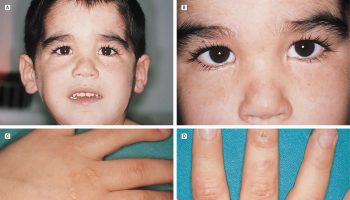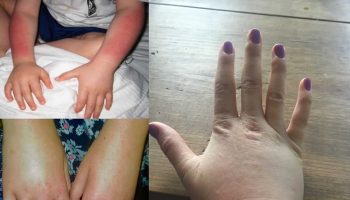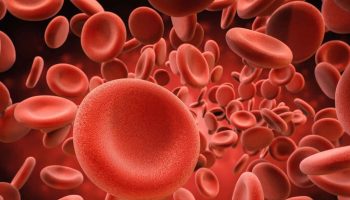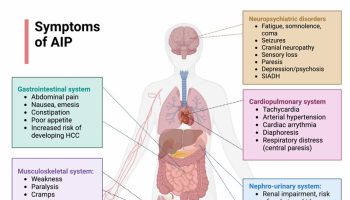Contents
What is psittacosis
Psittacosis also called parrot pneumonia, is an infection caused by Chlamydia psittaci, a type of bacteria that often infects birds and are found in the droppings of birds. Psittacosis in people is most commonly associated with pet birds, like parrots and cockatiels, and poultry, like turkeys or ducks. Birds spread the Chlamydia psittaci infection to humans. Less commonly, the Chlamydia psittaci bacteria can infect people and cause a disease called psittacosis. Psittacosis is a rare disease. Very few cases are reported each year in the United States. Since 2010, there have typically been fewer than 10 confirmed cases reported in the United States each year.
Most people begin developing signs and symptoms within 5 to 14 days after exposure to the bacteria (Chlamydia psittaci). Less commonly, people report symptoms starting after 14 days.
Psittacosis causes a wide range of symptoms, including fever, headache, and a dry cough. Psittacosis can also cause pneumonia (a lung infection) that may require treatment or care in a hospital. Rarely, psittacosis can be deadly.
The psittacosis infection is treated with antibiotics. Doxycycline is used first. Other antibiotics that may be given include:
- Macrolides
- Fluoroquinolones
- Other tetracycline antibiotics
A full recovery is expected if you do not have any other conditions that affect your health.
Note: Tetracycline and doxycycline by mouth are usually not given to children until after all their permanent teeth have started to grow in, because they can permanently discolor teeth that are still forming. These medicines are also not given to pregnant women. Other antibiotics are used in these situations.
Most people who get treatment for psittacosis make a full recovery. However, some people have serious complications and need care or treatment in a hospital. Complications include:
- Lung infection (pneumonia)
- Inflammation of the heart valves (endocarditis)
- Inflammation of the liver (hepatitis)
- Inflammation of the nerves or the brain, leading to neurologic problems
With appropriate antibiotic treatment, psittacosis rarely (less than 1 in 100 cases) results in death.
Psittacosis causes
Psittacosis infection develops when you breathe in (inhale) the Chlamydia psittaci bacteria. People between 30 to 60 years are commonly affected.
People at high risk for psittacosis include:
- Bird owners
- Pet shop employees
- People who work in poultry processing plants
- Veterinarians
Typical birds involved are parrots, parakeets, and budgerigars, although other birds have also caused the disease.
The Chlamydia psittaci bacteria can infect people exposed to infected birds. It is important to know that infected birds do not always have symptoms or seem sick. Both sick birds and birds without symptoms shed the bacteria in their droppings and respiratory secretions. When the droppings and secretions dry, small dust particles (including the bacteria) can get into the air. The most common way someone gets infected is by breathing in the dust from these dried secretions. Less commonly, birds infect people through bites and beak-to-mouth contact.
In general, people do not spread psittacosis to other people. However, this is possible in rare cases. There is no evidence that the bacteria spread by preparing or eating chicken meat.
Psittacosis prevention
Avoid exposure to birds that may carry the Chlamydia psittaci bacteria, such as parrots. Medical problems that lead to a weak immune system increase your risk for psittacosis and should be treated appropriately.
Safe bird and cage care
One important aspect of preventing psittacosis is to control infection among birds.
- Keep cages clean; clean cages and food and water bowls daily.
- Position cages so that food, feathers, and feces cannot spread between them (i.e., do not stack cages, use solid-sided cases or barriers if cages are next to each other).
- Avoid over-crowding.
- Isolate and treat infected birds.
Use water or disinfectant to wet surfaces before cleaning bird cages or surfaces contaminated with bird droppings. Avoid dry sweeping or vacuuming to minimize circulation of feathers and dust. Also remember to thoroughly wash your hands with running water and soap after contact with birds or their droppings.
Use personal protective equipment (PPE), such as gloves and appropriate masks, when handling infected birds or cleaning their cages.
Psittacosis symptoms
The incubation period of psittacosis is of 5 to 15 days. The incubation period is the time it takes for symptoms to appear after being exposed to the bacteria.
In general, psittacosis causes mild illness. The most common symptoms include:
- Blood-tinged sputum
- Dry cough
- Fatigue
- Fever and chills
- Headache
- Joint aches
- Muscle aches (most often in the head and neck)
- Shortness of breath
- Diarrhea
- Swelling in the back of the throat (pharyngitis)
- Swelling of the liver
- Confusion
Psittacosis can also cause pneumonia (a lung infection) that may require treatment or care in a hospital. Rarely, psittacosis can result in death.
In birds
The signs of Chlamydia psittaci infection in birds are non-specific and include:
- Poor appetite
- Inflamed eyes
- Breathing difficulty
- Diarrhea
Infected birds may not have symptoms or seem sick. When birds have symptoms caused by Chlamydia psittaci infection, veterinarians call the disease avian chlamydiosis.
Psittacosis possible complications
Complications of psittacosis may include:
- Brain involvement
- Decreased lung function as a result of the pneumonia
- Heart valve infection
- Inflammation of the liver (hepatitis)
Psittacosis diagnosis
Symptoms of psittacosis are similar to many other respiratory illnesses. In addition, tests to detect the bacteria directly may not be readily available. For these reasons, healthcare professionals may not suspect it, making psittacosis difficult to diagnose. The Centers for Disease Control and Prevention (CDC) rarely receives reports of psittacosis. Tell your healthcare professional if you get sick after buying or handling a pet bird or poultry.
Your health care provider will hear abnormal lung sounds such as crackles and decreased breath sounds when listening to the chest with a stethoscope.
Tests that may be done include:
- Antibody titer (rising titer over time is a sign of infection)
- Blood culture
- Sputum culture
- X-ray of the chest
- Complete blood count
- CT scan of the chest
Diagnosis of psittacosis can be difficult. Laboratories use several methods to detect Chlamydia psittaci infection. Some tests are only available in specialized laboratories. See the table below for advantages and disadvantages of different methods for diagnosing psittacosis. Laboratories typically run tests on sputum specimens or swabs of the nasopharynx and oropharynx or serum, depending on the method used. In severe cases, other specimen types may be used. When additional or specialized testing is necessary, local or state public health laboratories may be able to either provide diagnostic support or forward specimens to CDC.
Table 1. Advantages and disadvantages of select Chlamydia psittaci diagnostic methods
| Method | Advantages | Disadvantages |
|---|---|---|
| Culture |
|
|
| Serologic test (e.g., complement fixation, microimmunofluorescent antibody test) |
|
|
| Real-time polymerase chain reaction (PCR)1 |
|
|
Psittacosis treatment
People diagnosed with psittacosis usually take antibiotics to treat the infection. Most people improve quickly if they start antibiotics soon after they first get sick.
If your healthcare professional prescribes antibiotics for you, take it exactly as your healthcare professional tells you.
Chlamydia psittaci are sensitive to both macrolides and tetracyclines. However, tetracyclines are the drugs of choice, unless contraindicated as they are in children, due to reported macrolide failures.
- Psittacosis Diagnosis, Treatment, and Prevention. https://www.cdc.gov/pneumonia/atypical/psittacosis/hcp/diagnosis-treatment-prevention.html[↩]





